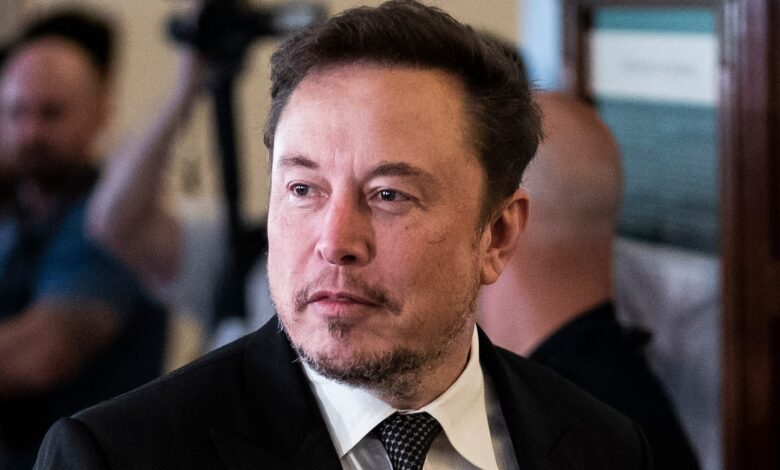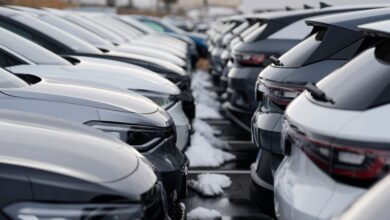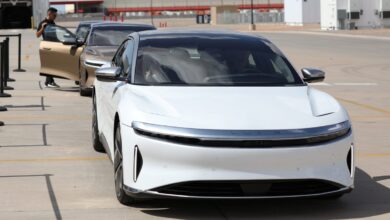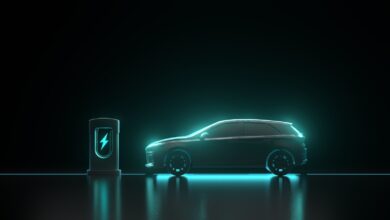Opinion | Tesla’s shareholders approved $50 billion for Musk, picking hype over reality

For as long as Musk has been CEO, Tesla has had two competing identities: a car business constrained by the tough realities of making and selling complex goods, and a madman’s dream factory that fueled its towering valuation. They have been more or less complementary, with Musk’s capital market magic papering over regular stumbles in the brutal car business.
Tesla’s core business is faltering, and Musk’s hype has barreled past the boundaries of outright fantasy, damaging the company’s reputation and entangling it in legal battles. Regardless, the shareholders of the world’s most valuable automaker have gone all in on the second identity, leaving the company to the risks of Musk’s unconstrained dreamweaving.
Starting in 2013, long before the term “meme stock” existed, Musk created the template for a new kind of social-financial phenomenon at the intersection of high-tech hype and online virality. As an erratic manager and less of an engineer than he likes to admit, Musk’s main value to Tesla was his skill in inspiring confidence in the firm’s ability to dominate the future of the auto industry and achieve preposterous technical goals.
What started as a tendency to exaggerate laudable and achievable goals, like a 2012 promise that every Supercharger would be solar-powered, has spiraled well out of control. Starting with the 2016 decision to take customers’ money for a fully self-driving capability that still hasn’t materialized, and accelerating into the current fantasy of creating robotaxis and general-purpose humanoid robots, Musk’s stock-pumping mythologizing has left reality in the rearview mirror. Musk himself now says that nearly all of Tesla’s value rests on the self-driving technology development that is reportedly the focus of a federal fraud investigation, to say nothing of countless civil lawsuits.
Not coincidentally, Musk’s hype escaped the surly bonds of reality around the same time his corporate power eclipsed any pretense of independent governance at Tesla. One watershed moment came in 2018, when Musk demanded, as the New York Times put it, that Tesla’s board “extol his integrity” following the Securities and Exchange Commission’s filing of fraud charges in response to his claim that a fictional take-private deal had “funding secured.” That same year, the board had approved Musk’s $56 billion compensation package, which was structured around market capitalization rather than focus on operational challenges, setting the stage for the carnival of science fiction fantasy that followed.
And for much of the past five years, Tesla’s operational challenges more or less took care of themselves. Its Model Y crossover hit the heart of the market just as EV hype peaked, and with covid-19’s supply-chain constraints creating structural undersupply in many car markets for the first time in memory, Tesla could charge whatever it liked for them. But as broader car undersupply has given way to premium EV oversupply, Tesla’s booming sales and profits have withered.
With Tesla’s core car business no longer showing signs of endless growth, Musk’s hype-focused leadership has increasingly been seen less favorably. This critique of Musk’s leadership was supercharged by his purchase of Twitter, and accompanying descent into culture-war commentary, which is viewed as both a further distraction and an unnecessarily divisive marketing move that can only hurt Tesla’s once broadly inclusive brand.
And rather than broadening Tesla’s market with more affordable mass-market offerings, Musk chose to invest in the similarly divisive Cybertruck, a vehicle whose every aspect reflects the desire to bring a meme to life rather than seriously compete in the lucrative full-size truck market.
Meanwhile, this week eight employees who were fired in 2022 filed a lawsuit against SpaceX and Musk alleging that the CEO treats “women as sexual objects” and retaliates against “those who challenge the ‘Animal House’ environment.” The day before, the Wall Street Journal detailed Musk’s history of carrying on romantic relationships with employees, including a former intern. (A SpaceX executive told the Journal its reporting painted a “completely misleading narrative” about the company’s culture.)
For anyone who has followed Tesla since its idealistic early days as a “mission-driven” organization committed to the ideal of accelerating the transition to sustainable energy, this outcome is tragically distant from those that were once envisioned for the company. Anyone cheering for the broader transition to electric vehicles has to be disheartened with this result, as its champion and mascot becomes a symbol of excess and unaccountability rather than the very real progress he helped usher in.
The good news is that even if Musk’s runaway ego has eclipsed Tesla, the broader shift toward EVs no longer depends on either Tesla or Musk. Globally, China’s dynamic new automakers have already assumed the mantle of technological and product leadership from Tesla. Established automakers are releasing a flood of slick EVs that are more than a match for Tesla’s. Even post-Tesla start-ups such as Rivian are managing to survive without resorting to Muskian hype. They are developing new generations of stylish, high-tech vehicles that will continue to push the market forward.
The EV sector has managed to do the one thing that Tesla investors can’t quite bring themselves to do: move on. Just as Henry Ford pioneered the modern auto industry with the Model T, only to be left behind as he got lost in his own overbaked legend, Musk’s abilities turn out to have been useful during a specific pioneering period and toxic thereafter.
Ford was ultimately pushed out of the company he founded by family members holding a majority of the company’s stock, allowing it to move into the new, maturing auto industry paradigm. With the recent shareholder vote, the possibility of a similar scenario at Tesla has all but disappeared, and the world’s largest automaker is now tied inexorably to the whims of its mad king.



